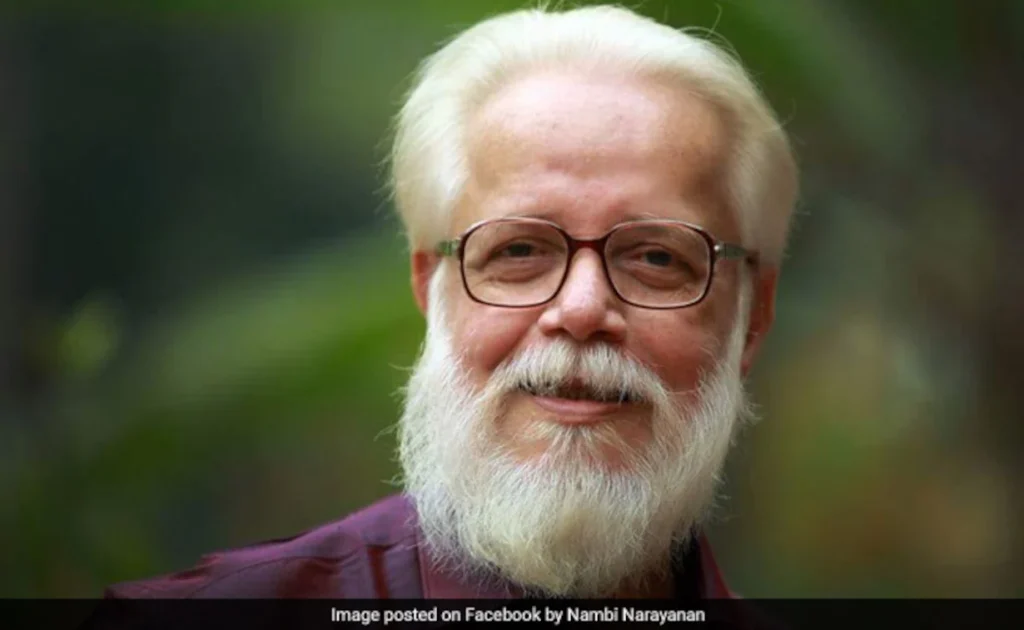
Nambi Narayanan is a well-known Indian space scientist and engineer who has made significant contributions to the country’s space program. He was born on December 12, 1941, in Tirunelveli, Tamil Nadu, and completed his education at Madras Institute of Technology (MIT) in Chennai. Narayanan began his career at the Indian Space Research Organisation (ISRO) in 1966 and worked there for over three decades before being falsely implicated in a spy scandal in 1994.
Nambi Narayanan was a part of the team that developed the Polar Satellite Launch Vehicle (PSLV), which played a crucial role in India’s space missions, including the successful Mars Orbiter Mission (MOM) in 2014. He also led the development of the liquid rocket fuel technology used in the country’s first satellite launch vehicle, the Satellite Launch Vehicle-3 (SLV-3). Narayanan’s expertise in the field earned him several accolades, including the Padma Bhushan and Padma Vibhushan, two of India’s highest civilian honors.
However, in 1994, Narayanan was falsely accused of selling rocket technology secrets to foreign countries and was arrested by the Intelligence Bureau. He was charged with espionage and spent over 50 days in jail, where he was allegedly subjected to torture and harassment. Narayanan was eventually exonerated of all charges, and the Supreme Court of India declared the case as a “malicious prosecution.”
The false charges and the subsequent legal battle took a severe toll on Narayanan’s personal and professional life. However, he continued to fight for justice and cleared his name, and was later awarded Rs. 50 lakhs as compensation by the Kerala government. Narayanan’s story has inspired many, and his resilience and dedication to his work have earned him the respect and admiration of people around the world.
In recent years, Nambi Narayanan has been actively involved in promoting space education and research in India. He founded the Space Technology Park at the Vikram Sarabhai Space Centre in Thiruvananthapuram, which serves as a platform for students and researchers to develop innovative space technologies. Narayanan has also authored several books on India’s space program and its history, including “Ready to Fire: How India and I Survived the ISRO Spy Case.”
The case of Nambi Narayanan has become a landmark in India’s judicial history, highlighting the dangers of baseless accusations and highlighting the need for justice and accountability. His story is a testament to the power of resilience, dedication, and a never-say-die attitude. Nambi Narayanan’s contributions to India’s space program and his unwavering commitment to his work will continue to inspire generations to come.
In conclusion, Nambi Narayanan’s life is an inspiration to many, and his story is a testament to the power of perseverance and dedication. Despite facing several challenges, Narayanan never gave up on his dreams and fought for justice, clearing his name and securing his legacy as a pioneer in India’s space program. His contributions to the field have been invaluable, and his commitment to promoting space education and research has inspired many to pursue careers in this field.








